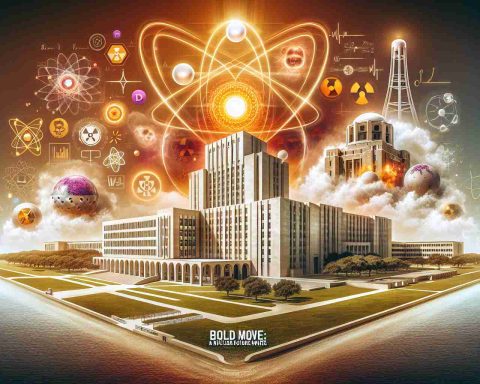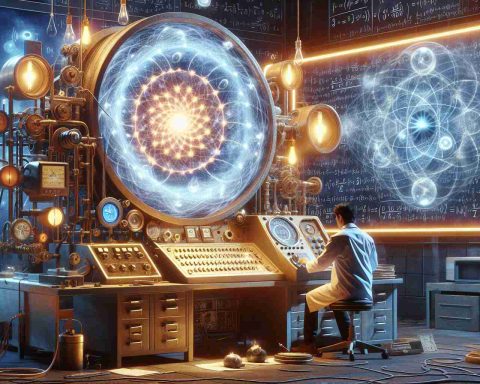- Vietnam and Russia are enhancing nuclear cooperation for sustainable energy solutions.
- Focus is on small modular reactors (SMRs), offering safer and flexible nuclear power options.
- Vietnam aims to reduce carbon emissions and meet electricity demand with nuclear energy.
- Collaboration includes research, technical exchanges, and joint investments in nuclear technology.
- This alliance holds significant geo-political implications for global energy transitions.
In a rapidly evolving global landscape, Vietnam and Russia are poised to strengthen their nuclear cooperation, with a focus on harnessing new technologies for sustainable energy solutions. This partnership marks a significant shift in Vietnam’s energy strategy as the Southeast Asian nation explores cleaner energy alternatives to support its growing economy.
Emerging Technologies and Collaborative Efforts
Recent discussions have unveiled plans for Vietnam and Russia to collaborate on cutting-edge nuclear technologies, including small modular reactors (SMRs), which promise to offer a safer and more affordable option for nuclear power generation. Unlike traditional large-scale reactors, SMRs are designed with advanced safety features and are flexible enough to be deployed in various locations, making them ideal for Vietnam’s diverse energy needs.
A Vision for the Future
Vietnam’s interest in nuclear energy is driven by its commitment to reducing carbon emissions and meeting the rising demand for electricity. With Russia’s expertise in nuclear technology, this collaboration has the potential to pave the way for innovative energy solutions that contribute to global climate goals. The alliance is expected to focus on R&D, technical expertise exchange, and joint investments to establish Vietnam as a pioneer in the region’s nuclear energy sector.
Geo-Political Significance
The strengthening ties between Vietnam and Russia in the nuclear domain reflect a strategic move in the context of global energy politics. As countries worldwide strive to transition to cleaner energy sources, Vietnam and Russia’s collaboration could serve as a model for similar partnerships, positioning both nations as key players in the future of sustainable energy.
Could Nuclear Cooperation Between Vietnam and Russia Redefine Global Energy Strategies?
Market Forecasts
The collaboration between Vietnam and Russia in nuclear energy, particularly focusing on small modular reactors (SMRs), is expected to influence the market significantly. According to energy forecasts, the global SMR market is projected to grow at a compound annual growth rate (CAGR) of around 13% from 2023 to 2028. This expansion is driven by the demand for greener and more resilient energy facilities.
Innovations and Technologies
Small modular reactors, a key component of this partnership, are a major leap forward in nuclear technology. Their compact size and modular nature allow for flexible installation in varied environments, catering perfectly to Vietnam’s geographical diversity. With Russia’s advanced nuclear technology, incorporating AI and IoT for safety and efficiency enhancements, these reactors could revolutionize nuclear energy application and management globally.
Geo-Political Insights
This cooperation has far-reaching geopolitical implications. By partnering, Vietnam and Russia are not only furthering their own energy goals but are also setting a precedent for emerging countries looking for sustainable energy solutions. This partnership could enhance their strategic positioning in the global energy political landscape, which is increasingly prioritizing clean energy solutions.
What are the technological advantages of SMRs for Vietnam?
Answer: Small modular reactors (SMRs) offer several technological benefits for Vietnam. Their modular design allows for scalability, meaning they can be deployed in a phased manner according to demand. This is particularly useful for a country with diverse environments and energy needs. Additionally, their advanced safety features reduce risks associated with nuclear energy, and their smaller size requires less initial capital investment and construction time.
How will the Vietnam-Russia partnership impact global energy markets?
Answer: The partnership is poised to set a trend for innovative, cross-border collaborations in nuclear energy. By leveraging advanced Russian technology, Vietnam may become a case study for integrating SMRs in fast-growing economies. This could ripple across global energy markets, accelerating the adoption of cleaner nuclear technology and potentially influencing nuclear energy policies and investments worldwide.
What are the sustainability aspects of this nuclear collaboration?
Answer: From a sustainability perspective, this collaboration aims to significantly reduce Vietnam’s carbon emissions by transitioning to cleaner nuclear energy. SMRs, as part of this shift, offer a lower carbon footprint compared to traditional coal-fired plants, aligning with global climate goals. This partnership is also a step towards achieving energy security and independence, which are crucial components of sustainable development.
For more information on energy innovations and nuclear technologies, visit the Rosatom website.
The source of the article is from the blog klikeri.rs












